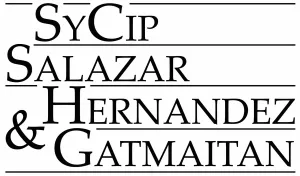Internet Transactions Act
Senate Bill No. 1846 entitled "An Act Protecting Consumers and Merchants Engaged in Internet Transactions, Creating for this Purpose the Electronic Commerce Bureau, Appropriating Funds therefor, and for other Purposes" (Internet Transactions Act of 2022) is currently pending in the Senate. The bill aims to promote and maintain a robust e-commerce environment in the country by building trust between online merchants and consumers. Further, it seeks to ensure effective regulation of commercial activities through the internet or electronic means.
The Internet Transactions Act of 2022 will apply to any stage of all business-to-business and business-to-consumer internet transactions, including those related to the internet retail of consumer goods and non-financial services, online travel, online media, and online delivery. However, the Internet Transactions Act of 2022 will not cover consumer-to-consumer transactions and financial products and services.
Proposed key provisions
- Entities engaging in e-commerce which purposefully avails of the Philippine market shall be deemed to be doing business in the Philippines and be subject to applicable Philippine laws and regulations, including the Internet Transactions Act of 2022. The accessibility of goods and services to consumers in the Philippines shall be considered in ascertaining whether one engaged in e-commerce is purposefully availing the Philippine market.
- The DTI shall exercise regulatory jurisdiction over e-marketplaces, e-retailers, online merchants, and other digital platforms that sell or allow the sale of exchange of goods, services, or digital services, and are purposely availing of the Philippine market.
- A person who is authorized to engage in e-commerce in the Philippines and who facilitates the sale of goods, digital content, or services by one who is not so authorized is deemed primarily liable for any obligation, damage, or fine, that may arise from the transaction or the digital product.
- Obligations of e-marketplaces and other digital platforms include requiring all online merchants to provide relevant information and documents such as business registration or government identification card, geographic address and contact details. They are also mandated to maintain a list of all online merchants registered under their platform, which shall be regularly verified, as determined by the E-Commerce Bureau. They may be subsidiarily liable with an online merchant or e-retailer to the consumer only to the extent of damages suffered by the consumer as a direct result of the transaction. When the online merchant is liable to the consumer because of a lack of conformity with the contract, the consumer may pursue various remedies which include refund of the amount paid in case the product or similar item is no longer available, proportionate reduction of the price in certain instances, repair or replacement of products.
Open Access in Data Transmission Act
Senate Bill No. 1876 entitled "An Act Promoting Open Access in Data Transmission and Providing Additional Powers to the National Telecommunications Commission" (Open Access in Data Transmission Act) is currently pending in the Senate and has undergone first reading as of writing. The bill aims to encourage the development of data transmission infrastructure and to remove any barrier to competition in data transmission services. Further, it seeks to promote telecommunications standards suitable to the needs of the country and to ensure that internet users enjoy the best quality of data transmission service.
All data transmission industry participants shall be required to register with the National Telecommunications Commission (NTC). Open Access in Data Transmission Act defines Data transmission Industry participant as any person, firm, partnership or corporation, government or private, engaged in the provision of data transmission services to the public. This includes PTEs that offer data transmission services as defined under the Public Telecommunications Policy Act of the Philippines.
For those who operate an international cable landing station, it is required that they secure a legislative franchise while those who will operate a nationwide backbone network, a permit from the NTC is needed.
Proposed key provisions
- The NTC is tasked under the bill to set performance standards including mandating the provision of minimum download speed of two megabits per second or as mandated by the National Broadband, whichever is higher, for mobile broadband and for fixed wireless/broadband access. Any person, or the NTC itself, may, motu proprio, file a petition to penalize any data transmission industry participant for failure to deliver service according to the NTC's published performance standard and to require rectification of such noncompliance.
- The bill seeks to punish the following acts: refusal to plug and play, paid prioritization, refusal to give information, throttling, and anti-competitive cross-subsidization. Any data transmission industry participant who engages in the prohibited acts or fails to comply with the performance standards set by the NTC shall suffer a minimum penalty of a fine of not less than PhP300,000 but not more than PhP5,000,000 for every day that the violation continues until the participant fully complies. In addition to monetary penalties, all certificates, licenses, authorizations, rights, and awards issued to the industry participant shall be forfeited.
The content of this article is intended to provide a general guide to the subject matter. Specialist advice should be sought about your specific circumstances.

